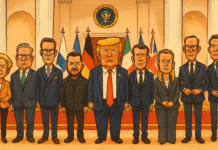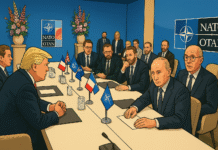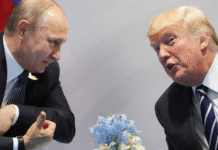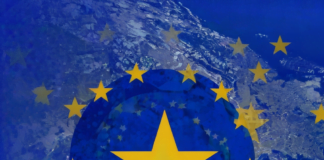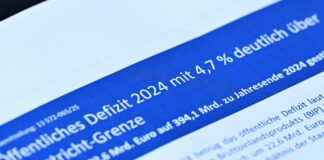
|
Getting your Trinity Audio player ready...
|
In a world marked by geopolitical turmoil and ever-evolving alliances, one nation stands as a beacon of neutrality: Austria.
The Ukrainian conflict has drawn international attention, sparking questions about whether this constitutional commitment to neutrality remains steadfast among Austrians.
The resounding answer is: nein. Not much has changed.

Recent polling conducted by Der Standart newspaper reveals that a remarkable 69 percent, over two-thirds of Austrians, remain unwavering in their conviction that neutrality is the path to follow. Only 21 percent advocate for Austria’s involvement in collective security agreements like NATO.
This sentiment has barely shifted since the last poll in May 2022, which took place in the wake of Russia’s full-scale invasion of Ukraine. Back then, 71 percent of Austrians favored neutrality, following a consistent trend. The peak of support, reaching 76 percent, was observed in 2019.
As policy researcher David Pfarrhofer aptly notes, “we’ve been asking questions about neutrality for two decades, and the responses have remained strikingly consistent since 2003. The mood remains remarkably stable.”

Interestingly, most Austrians view neutrality as a dynamic concept, adapting to circumstances. This perspective emerged after Austria’s entry into the European Union in 1995, following a heated debate about whether EU membership would compromise the nation’s neutrality.
The concept of neutrality is most popular among Austrians aged fifty and over, particularly resonating with supporters of the far-right Freedom Party (FPÖ), where a staggering 92 percent favor staying out of NATO and similar alliances.
Surprisingly, it’s the Greens, currently part of a government coalition, who are the only party whose voters are split on ending neutrality, with 46 percent in favor and 43 percent against. Supporters of the Liberal NEOS party are evenly divided on the issue, while voters of all other parties lean toward maintaining Austria’s neutrality.

Critics have frequently pointed fingers at Austria for “free-riding,” implying that Austrian security benefits from its proximity to NATO states without a corresponding financial commitment. The country allocates a mere 0.8 percent of its GDP to military spending, one of the lowest ratios in Europe, just ahead of Ireland, another neutral nation.

Paradoxically, the same poll also reveals that Austrians are eager to invest more in their military. Surprisingly, it’s the supporters of neutrality who champion this cause, with older and FPÖ-leaning voters advocating for an increased military budget. In contrast, Greens prefer to maintain current military spending. Overall, 62 percent of Austrians support higher military expenditures.
Some critics have pointed to Austria’s refusal to supply arms to Ukraine, all while maintaining substantial gas purchases from Russia, as evidence that their neutrality might be less absolute than claimed, possibly benefiting Russia.
As Austria’s National Holiday approaches, celebrated with the signing of neutrality into the constitution, the nation’s resolute commitment to remaining neutral in a world full of shifting alliances and geopolitical uncertainties stands as a testament to their enduring convictions.







